The Oklahoma Board of Equalization certified the Legislature will have more than $8.2 billion to appropriate for Fiscal Year 2020 on Wednesday. It is $574.5 million more than FY 19’s appropriation. However, a drop in personal income tax and weakening oil and gas prices lowered the target from December’s estimate by $37.8 million.
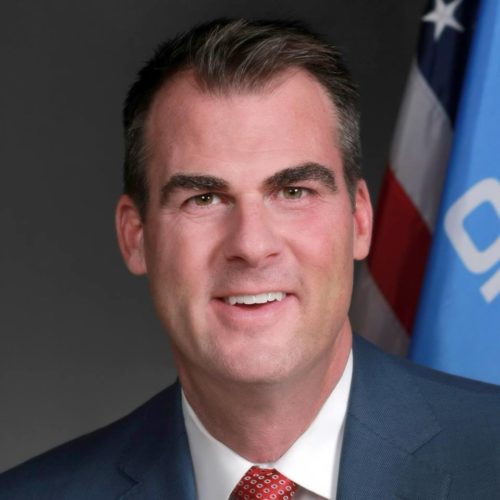 “Today’s report by the Board of Equalization is encouraging,” said Governor Stitt. “Our state’s economy has remained strong because of Oklahomans who are working hard, opening businesses and creating jobs. Moving forward, my budget priorities for FY 2020 remain the same. My number one focus is on improving our state’s savings and delivering agency accountability. These are the keys to unlocking Oklahoma’s turnaround and putting us on a path to a stronger future. In order to accomplish this, we must invest in our savings account and recognize that true fiscal accountability and transparency is not possible until the governor has hire and fire authority over state agencies. I look forward to working with the Legislature this session to get this done.”
“Today’s report by the Board of Equalization is encouraging,” said Governor Stitt. “Our state’s economy has remained strong because of Oklahomans who are working hard, opening businesses and creating jobs. Moving forward, my budget priorities for FY 2020 remain the same. My number one focus is on improving our state’s savings and delivering agency accountability. These are the keys to unlocking Oklahoma’s turnaround and putting us on a path to a stronger future. In order to accomplish this, we must invest in our savings account and recognize that true fiscal accountability and transparency is not possible until the governor has hire and fire authority over state agencies. I look forward to working with the Legislature this session to get this done.”
Economic projections indicate a possible slowing of the economy. That has Stitt’s Secretary of Budget Mike Mazzei concerned about trying to save money instead of spending funds generated by state revenue growth.
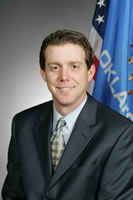 “It’s important going into the next two fiscal years that we build a state budget that is sustainable. While we did not meet the threshold for money to be deposited into the new Revenue Stabilization Fund this year, it is very likely that a large deposit will happen next fiscal year,” said Mazzei. “This deposit could be hundreds of millions of dollars, which means there could be no growth revenue in FY 2021.”
“It’s important going into the next two fiscal years that we build a state budget that is sustainable. While we did not meet the threshold for money to be deposited into the new Revenue Stabilization Fund this year, it is very likely that a large deposit will happen next fiscal year,” said Mazzei. “This deposit could be hundreds of millions of dollars, which means there could be no growth revenue in FY 2021.”
“We need to be cautious when allocating agency appropriations this year,” Mazzei added. “If current trends continue, and we appropriate all available funds for FY 2020 operations, we could be setting ourselves up for some difficulty next year.”
House leaders seemed relieved they have some wiggle room in the budget this year.
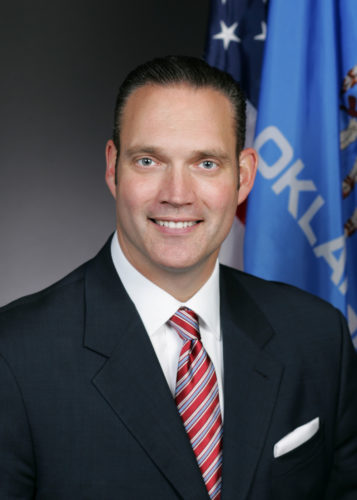 “It is encouraging to have surplus revenue available to help meet the needs of our core state agencies, especially after many years of budget deficits,” said House Speaker Charles McCall. “Our state’s economy has been trending up over the last year. We have enough growth revenue to deposit $360 million in the Rainy Day Fund, which will give us a total of just over $800 million in our state savings account.”
“It is encouraging to have surplus revenue available to help meet the needs of our core state agencies, especially after many years of budget deficits,” said House Speaker Charles McCall. “Our state’s economy has been trending up over the last year. We have enough growth revenue to deposit $360 million in the Rainy Day Fund, which will give us a total of just over $800 million in our state savings account.”
House Appropriations and Budget Chairman Kevin Wallace echoes the governor’s caution in spending the “surplus.”
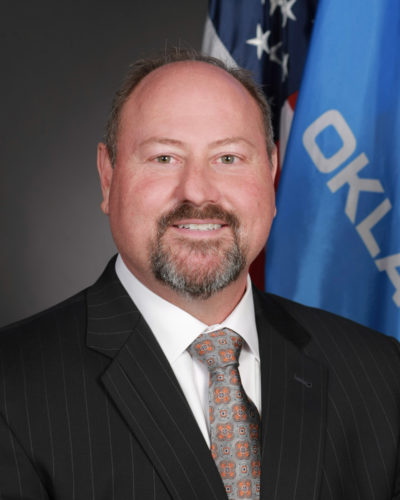 “We are in a much better position than we have been in recently, but we have to be realistic about how far this surplus can go,” said Wallace. “The reality is that approximately $200 million of that surplus has already been spent in teacher flex benefit increases, ad valorem reimbursements, bond payments and the Children’s Health Insurance Program. If the Legislature passes the $1,200 teacher pay raise, which would cost $70 million, and the $30 million appropriation to the County Roads and Bridges Fund, that will be another $100 million. Frankly, given our recent history, I think it would be prudent to set aside at least 10 percent of that surplus to begin building a state savings account. The rest will be available to help invest in our state agencies, which have already sent us budget increase requests topping $1.2 billion over last year and more than $33 million in supplemental funding requests.”
“We are in a much better position than we have been in recently, but we have to be realistic about how far this surplus can go,” said Wallace. “The reality is that approximately $200 million of that surplus has already been spent in teacher flex benefit increases, ad valorem reimbursements, bond payments and the Children’s Health Insurance Program. If the Legislature passes the $1,200 teacher pay raise, which would cost $70 million, and the $30 million appropriation to the County Roads and Bridges Fund, that will be another $100 million. Frankly, given our recent history, I think it would be prudent to set aside at least 10 percent of that surplus to begin building a state savings account. The rest will be available to help invest in our state agencies, which have already sent us budget increase requests topping $1.2 billion over last year and more than $33 million in supplemental funding requests.”
House Minority Leader Emily Virgin is giving Democrats in the Legislature the credit for last year’s tax increases which helped fund a historic teacher pay raise. She also outlined that state government agencies have funding needs which have not been met by the Legislature.
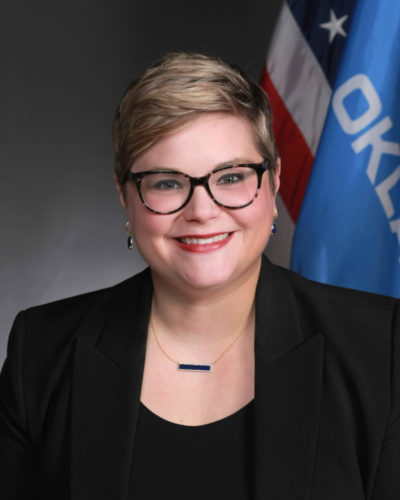 “Last year, after a decade of Republican policies that favor high earners at the expense of core services and low and middle income Oklahomans, House Democrats pushed this body to responsibly raise revenue and begin to reinvest in core government services,” Virgin said. “Today’s surplus is a direct result of House Bill 1010xx. However, this legislation must not be viewed as the end of our commitment to fund government but the beginning.
“Last year, after a decade of Republican policies that favor high earners at the expense of core services and low and middle income Oklahomans, House Democrats pushed this body to responsibly raise revenue and begin to reinvest in core government services,” Virgin said. “Today’s surplus is a direct result of House Bill 1010xx. However, this legislation must not be viewed as the end of our commitment to fund government but the beginning.
“Our education system is underfunded. Our criminal justice system is underfunded. The department of human services is underfunded. Rural hospitals are underfunded and many have closed. The buying power of our citizens has been greatly reduced and more Oklahomans find themselves working multiple jobs just to survive.”
Virgin doesn’t agree with the Republicans when it comes to saving at least part the higher revenue windfall for future downturns.
“The House Democratic Caucus believes that every dollar of this additional revenue should be put back into the agencies that have been raided in the name of high-income tax cuts and corporate greed.
“This additional revenue should go toward expanding Medicaid, putting more money into the classroom, and ensuring state employees are compensated fairly. This money should go toward restoring the earned income tax credit and creating a more equitable tax system. This revenue should go toward building a better Oklahoma,” said Virgin.


